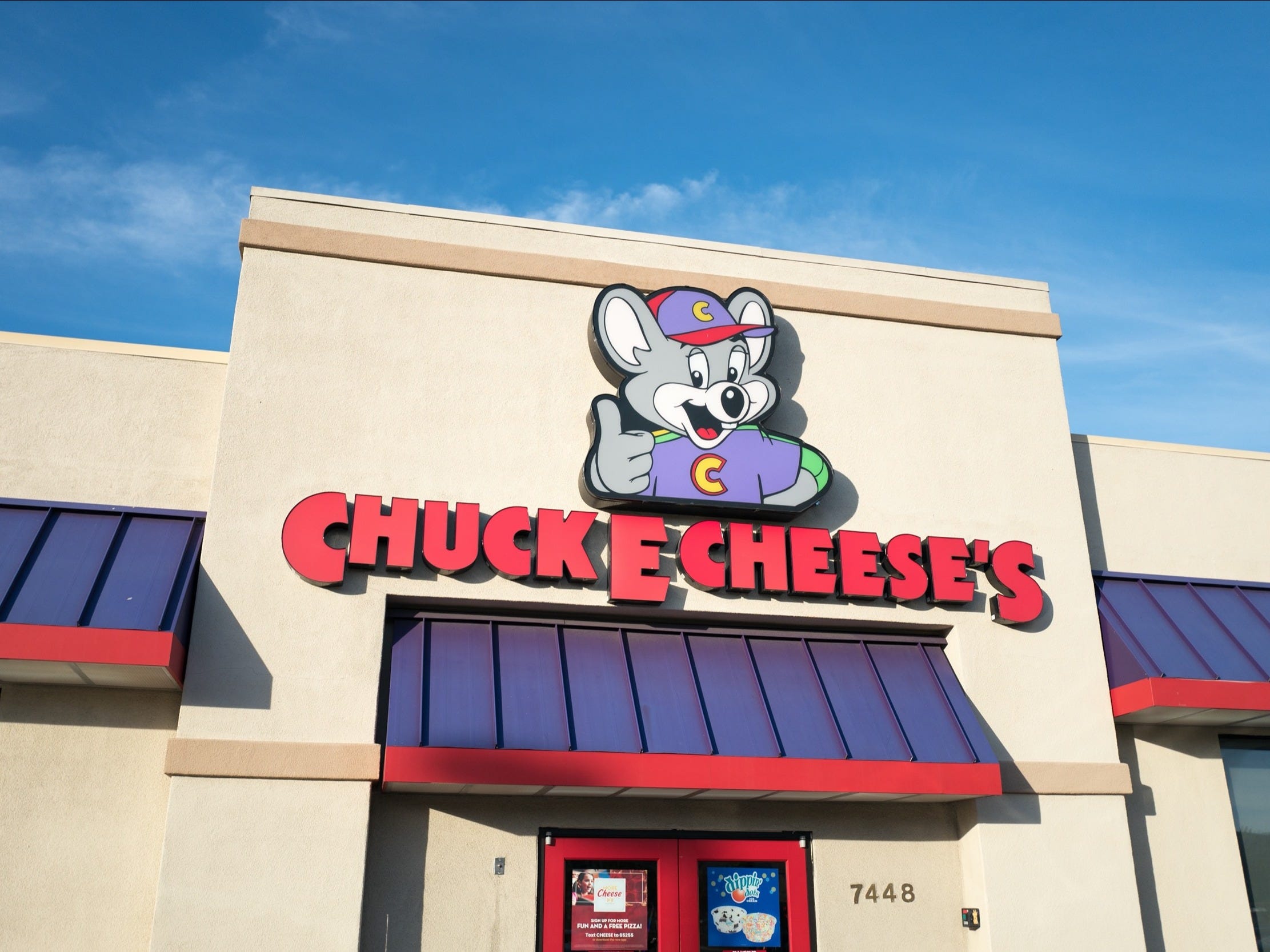- Chuck E. Cheese filed for Chapter 11 bankruptcy on June 25. It is just the latest brand once beloved by millennials to face its downfall.
- A number of now-nostalgic brands like Limited Too and Claire’s filed for bankruptcy in recent years, along with brands that couldn’t compete with technological innovations like Toys R Us and Blockbuster.
- Here’s a look at brands that were once distinctly championed by millennials in the early aughts that are not necessarily still thriving.
- Visit Business Insider’s homepage for more stories.
Chuck E. Cheese

Chuck E. Cheese – the dinnertainment chain many will lovingly remember for its birthday celebrations – filed for Chapter 11 bankruptcy protection on June 25.
The coronavirus pandemic hit the company hard, and it filed for bankruptcy after weeks of speculation. The company plans to continue reopening restaurants through its bankruptcy proceedings.
Chuck E. Cheese was cherished in the 1990s and 2000s for its prize tokens, pizza, and animatronic performances. It retired both its prizes and animatronic performances in 2016 and 2017, respectively.
Limited Too

Chuck E. Cheese is far from the only once-beloved millennial brand to take a hit during an economic downturn. Limited Too, the tween girl clothing store of choice in the 90s, shuttered back in 2008 amid the recession.
The kids-oriented offshoot of The Limited sold colorful, rhinestone-crusted tank tops and gaucho pants and played an integral part in many young fashionistas lives. It opened in 1987 and at one point had 600 stores nationwide.
The brand was ultimately folded into Justice - a clothing store that sells similar threads but a lower price point.
Claire's

Iconic jewelry chain Claire's filed for bankruptcy in March 2018.
At the time, the company said plunging customer traffic in shopping malls led to its decline. Consumer preferences on the whole, according to Claire's, have shifted toward online shopping. Even still, the one-time teen haven's unique offering - its ear-piercing service - cannot be replicated virtually.
When Business Insider's Mary Hanbury visited a Claire's location the day before the retailer filed for bankruptcy she found it to be "like stepping back into the '90s." To her, "it seemed that the store was struggling to compete for the modern teen shopper."
J. Crew

J. Crew - one of America's most iconic preppy brands - filed for Chapter 11 bankruptcy on May 4. It was the first major retailer to do so amid the coronavirus pandemic.
The retailer's heyday was in the mid-2000s, but it launched in 1983. The company secured more than $1 billion in funding from lenders to continue day-to-day operations and reopen stores.
Toys R Us

Toys R Us was a retailer so ubiquitous in the 1990s that it drove independent toy stores out of business.
Facing a number of obstacles, including the rise of Amazon, the company filed for bankruptcy in September 2017. It began liquidating all its merchandise in March 2018, with up to 90% discounts. It closed all its US locations by June 2018.
Toys R Us, in all its Barbie and Hot Wheels glory, attempted to rise from the dead in February 2019. There are a couple Toys R Us locations still operating, even amid the coronavirus pandemic.
Victoria's Secret

Victoria's Secret is the country's largest lingerie retailer - and since the late 1990s, it has been one of the best-known and most talked about brands in the country, too.
Amid the coronavirus pandemic, the store is permanently closing as many as 250 stores in the US and Canada. The news came after management confirmed that a deal to sell a majority stake in the company to private-equity firm Sycamore Partners had fallen through.
A number of changes turned the tide for the brand however, from slipping sales to shifting public perception and issues within the C-Suite.
Blockbuster

Founded in 1985, Blockbuster was the top movie-rental business in the country in the 1990s and early 2000s. Many fondly remember Blockbuster as a family staple and a signifier of an exciting Friday night.
In 2010, the company filed for bankruptcy because it was incapable of competing with no-fee rental companies. By 2014, most of the company's stores had closed.
While there were once over 9,000 stores in the US, today, just one remains. The last Blockbuster standing is located in Bend, Oregon. Its management thinks it will even make it through the coronavirus pandemic unscathed.

